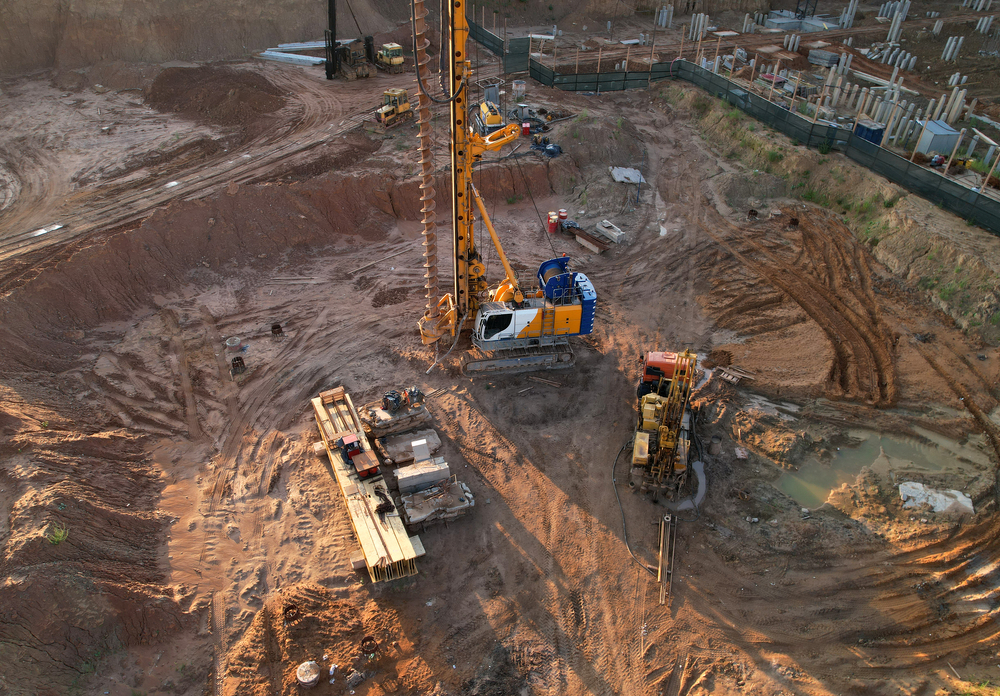The Basic Principles Of Geotheta
The Basic Principles Of Geotheta
Blog Article
How Geotheta can Save You Time, Stress, and Money.
Table of ContentsGeotheta Things To Know Before You BuyGeotheta Fundamentals ExplainedFascination About GeothetaThe Buzz on GeothetaOur Geotheta Ideas
To master this area, geotechnical designers need a solid structure in mathematics and physics, in addition to excellent logical and problem-solving skills. Focus to detail and the capability to think seriously are important when assessing complex soil actions and determining possible risks. Effective interaction and synergy skills are also necessary, as geotechnical designers frequently work together with multidisciplinary teams and interact with customers and stakeholders. By remaining at the forefront of technical developments, geotechnical designers can offer cutting-edge solutions and enhance the design and building processes. In final thought, geotechnical design is an interesting area that incorporates various self-controls to guarantee the stability and safety of frameworks.
With their expertise and abilities, they contribute to the growth of lasting and resistant infrastructure that can stand up to the challenges of the natural setting. To come to be a geotechnical designer, you will need to pursue a mix of instructional credentials and hands-on experience. Here is a breakdown of the academic pathways: While in secondary school, trainees interested in geotechnical engineering should concentrate on topics such as mathematics, physics, chemistry, and geography.
Geotheta for Dummies
Math is particularly essential as it forms the basis for lots of engineering computations - Consulting Engineer.
Several universities in the UK offer accredited civil design programs that cover important subjects like dirt auto mechanics, geology, architectural evaluation, and engineering design. It's suggested to pick a program with a solid emphasis on geotechnical engineering training courses. https://penzu.com/p/952dfde2dba9ee4f. During your undergraduate studies, you will delve much deeper right into the principles and theories of geotechnical design

Geotheta for Beginners
D. in geotechnical design can enhance your profession potential customers. These innovative levels enable specialization in specific areas, such as geotechnical website investigation, structure design, or geotechnical earthquake engineering. During postgraduate studies, you will have the opportunity to conduct extensive research and add to the improvement of geotechnical engineering understanding.
Postgraduate studies provide access to innovative training courses and workshops where you can discover specific subjects such as mathematical modeling, geotechnical threat evaluation, or geotechnical instrumentation. These extra abilities and knowledge can open doors to difficult roles in speaking with firms, research institutions, or federal government firms. Overall, the combination of undergraduate and postgrad research studies in geotechnical engineering furnishes you with a solid academic foundation and useful skills necessary to tackle the geotechnical obstacles of the modern-day world.

Obtaining an expert design certificate is not just a symbol of your technical capability but likewise a testament to your devotion to the area. It showcases your commitment to preserving the highest possible standards of professionalism and reliability and values in your job. With a professional engineering permit, you obtain the trust and confidence of clients, employers, and associates, which can open doors to interesting job advancements and chances.
The 7-Second Trick For Geotheta
It gives you the authority to accept design strategies, layouts, and reports, making certain that your job fulfills the called for safety and security and quality criteria. This obligation features a sense of pride and liability, as your work straight affects the security and well-being of the public. To obtain a professional design license, you need to initially complete the needed academic qualifications and acquire pertinent work experience.
The IPD typically lasts around four years and includes monitored job experience and proceeded specialist growth (CPD). Once you have actually pleased these demands, you can make an application for professional registration with the Engineering Council. Throughout the IPD phase, you will have the possibility to work under the assistance of skilled designers, enabling you to use your academic understanding to real-world tasks.
Furthermore, participating in continued expert growth tasks, such as participating in conferences, workshops, and seminars, enables you to remain updated with the most recent improvements in geotechnical design. Once you have finished your IPD and built up the necessary experience, you can wage the application for professional registration. This involves sending a detailed profile of evidence that shows your skills and commitment to the career.
Geotheta Fundamentals Explained
Along with specialist licensing, getting extra accreditations can aid you stand out in an affordable work market. https://ianhammond2191.wixsite.com/my-site-2/post/unlocking-the-secrets-of-geotechnical-engineering-with-geotheta. For instance, the Organization of Civil Engineers (ICE) uses the Diploma in Civil Engineering and the Chartered Professional Review (MOUTH-TO-MOUTH RESUSCITATION) program. These certifications show your knowledge and commitment to continual expert growth
It covers a wide variety of topics, including architectural analysis, geotechnical design, transport systems, and building management. By obtaining this diploma, you show your capability to tackle complex engineering difficulties and add to the development of innovative services. The Chartered Specialist Testimonial (MOUTH-TO-MOUTH RESUSCITATION) look at this site program, on the other hand, is developed to evaluate your capability as a professional engineer.
Successfully finishing the CPR program demonstrates your ability to apply your knowledge and experience successfully, ensuring that you meet the highest professional standards. By obtaining these additional certifications, you not only enhance your technical skills but likewise show your dedication to continual learning and expert growth. Employers worth prospects that spend in their expert advancement, as it shows their dedication to remaining existing with sector patterns and innovations.
Report this page